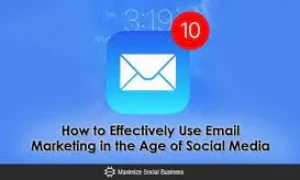Let us ask you a question – how do you measure your health?
Possible options are measuring your heartbeat and checking your sugar/BP levels. Or it could be just an endurance rate. Or, it could be a therapy session to check the state of your mental health.
This indicates different ways to check your health because health can be defined from different standpoints.
Sorry to remind you of different health-related aspects. However, we could not draw a better analogy than this. Now just replace health with content marketing.
Content marketing also has numerous facets to it.
Let’s figure out…
A Guide To Measuring Connect Marketing Success
What are the key factors? Here you go:
1. GOAL
Similar to the above analogy, the success of content marketing depends on how you look at it.
Confused?
Friend, we are talking about GOAS! What is the top goal of your content marketing strategy?
Traffic? Brand awareness? Leads? Sales? Engagement?
A ‘RIGHT’ goal for another brand can be ‘WRONG’ for yours.
Ask this question to yourself: “What is that ONE thing I want to achieve?”
When you are clear with that ONE thing, it will be much easier to measure its success.
For example, your goal is engagement, and you are monitoring revenue. That’s not the right way to measure.
2. KPIS Of Content Marketing
Be it leads or brand awareness, key performance indicators help you in measuring your success.
Here are some probable KPIs for content marketing:
- Brand Awareness – visitors, subscribers, followers, etc.
- Loyalty – Bounce rate, retention rate.
- Revenue – Sales, subscriptions, orders, etc define it.
- Engagement – Like, share, retweet, comment, etc.
- Leads – signups, newsletter subscriptions, etc.
Points to remember:
- When you are considering the number of visitors, please make sure you pay special attention to the number of unique visitors. It will say much about your content, such as what keeps them engaged with your site.
- In case of bounce rate, consider people who leave your website immediately without interacting with your site.
- Analyze the time spent on your site. You can draw better conclusions when you correlate this with the site experience (in case they are not finding what they’re looking for).
- Pay attention to the social media noise. Is your content getting enough attention? Are people sharing it on social media? What about the comments – they tell you how your audience perceives your content benignly.
3. Sentiments
What is the role of sentiments in content marketing? Sentiments come from storytelling. It tells you whether people are connected to your brand more deeply.
Figure out if they can relate to your content.
What is the secret recipe for viral content? Connection! People who relate to your content are much more likely to share it.
More than success or failure, this measurement will help you to learn & do better in your next campaigns. Also, these measurements will help you to understand your audience in more detail.
For any business, understanding their audience personas, like interests and behaviours, is the more important thing, and if they crack it, then you can easily reach them, connect with them, and convert them.
4. Monitor Your SEO Performance
SEO is an integral part of content marketing. SEO parameters such as ranking and click-through rate determine the success of your content.
When you evaluate your SEO strategies, you get to know 3 things:
- Loopholes in your current strategy.
- Evaluation.
- How to proceed further.
How do you evaluate SEO performance for content marketing success?
Here are the parameters you need to consider:
- Organic Traffic indicates the number of traffic that comes to your site organically – that is, from search results. Higher organic traffic is a testimony of SEO best practices. Moreover, consider CTR is an important factor – it will ensure that the search engine will prefer your links.
- Organic Visibility reflects your presence. Higher organic visibility indicates that you are getting discoverable.
- Is your visitor staying on your website? Check Time on Page. Regarding the same, you need to work on user experience.
- Keyword Ranking ensures that you rank on the specific keyword. Here you get to know whether you are targeting the right keywords and people.
- Check your bounce rate. It tells you the number of people who entered your site but left without further interaction. A higher bounce rate sends a wrong signal to search engines. They consider your content is not up to the mark.
5. Other Metrics to Consider
Hold on! There are other metrics that you must consider. Here you go:
Let’s start with consumption metrics
- Engagement metrics – page view, unique visitors, average time on page, and behaviour flow.
- Retention metrics – bounce rate, page per visit, and return rate.
- Social Metrics – followers count, social media likes, shares, comments.
- Email Metrics – open rate, click-through rate, conversion rate, asset downloads, and email subscribers churn rate.
- Content Production Metrics – time spent on content production, performance over time.
- Cost metrics – cost per content, cost of distribution of the content.
- Sales metrics – number of leads generated, leads quality score, exciting leads influenced.
Let’s Wrap It Up!
The success of content marketing lies in three important factors:
- Strategy.
- Quality.
- Consistency.
When you work with a team of experts, you’ll get the opportunity to take our content marketing to new heights.
Starting from optimizing your content to optimizing it – they take care of everything. Plus, they will promote your content for higher visibility.
If you want to sit back, relax and let a team of experts help you – opt for a reputed content writing service.
We hope this article sums up what you were looking for.
For further doubts, feel free to ask your doubts.






































